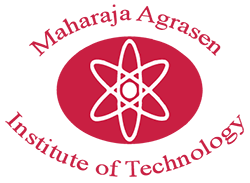FLUID MECHANICS AND HYDRAULIC MACHINES LAB

Lab Incharge : Dr. Siddharth
Lab Technician: Mr. Suresh Chand Sharma
The Fluid Mechanics and Hydraulic Machines Lab is designed to provide students with hands-on experience in fundamental fluid mechanics concepts. This lab is an essential part of engineering education, ensuring that students develop the practical skills necessary to analyze and apply fluid mechanics principles in real-world engineering applications, including the design and operation of hydraulic machines.
Lab Overview:
The Fluid Mechanics and Hydraulic Machines Lab is equipped with state of the art experimental setups that help students understand fundamental and applied fluid mechanics concepts. It enables them to analyze fluid flow, test hydraulic machinery, and study performance characteristics, ensuring proficiency in real-world engineering applications.
Key Equipments in the Lab:
- Bernoulli’s Theorem Apparatus – Demonstrates the principle of energy conservation in fluid flow.
- Orifice and Venturi Meter – Measures flow rates using differential pressure principles.
- Pipe Friction Apparatus – Analyzes head loss due to friction in pipes (Major and minor losses).
- Impact of Jet Apparatus – Studies the force exerted by a fluid jet on different vanes.
- Pelton Wheel Turbine – Demonstrates the working of an impulse turbine.
- Francis and Kaplan Turbines – Tests the performance of reaction turbines.
- Centrifugal Pump – Evaluates pump efficiency and performance.
- MetaCentric Height Apparatus- Determine the stability of a floating body by calculating its meta-centric height (GM)
- Reynolds’s Law Apparatus- Determines Reynold’s no. The main aim of Reynolds's law apparatus is to demonstrate and study different flow patterns (laminar, transition, and turbulent)
- Darcy’s Law Apparatus-The apparatus allows for controlled experiments to confirm the relationship between flow rate, hydraulic gradient
Learning Objectives:
By the end of this course, students will be able to:
-
Determine the stability conditions of floating bodies through experimental analysis.
-
Verify Bernoulli’s theorem and demonstrate its application in various flow measurement devices (e.g., venturimeter, orifice meter).
-
Classify different flow regimes and estimate head losses due to friction and dynamic effects in pipe flow.
-
Analyze forces acting on different types of vanes, describe the constructional details of hydraulic turbines and pumps, and calculate their efficiencies while interpreting performance characteristic curves.
This lab plays a crucial role in preparing students for careers in fluid mechanics, hydraulic engineering, and water resource management. It equips them with practical knowledge of fluid behavior, pump and turbine performance, and flow measurement techniques, essential for industries like civil, mechanical, and marine engineering.









